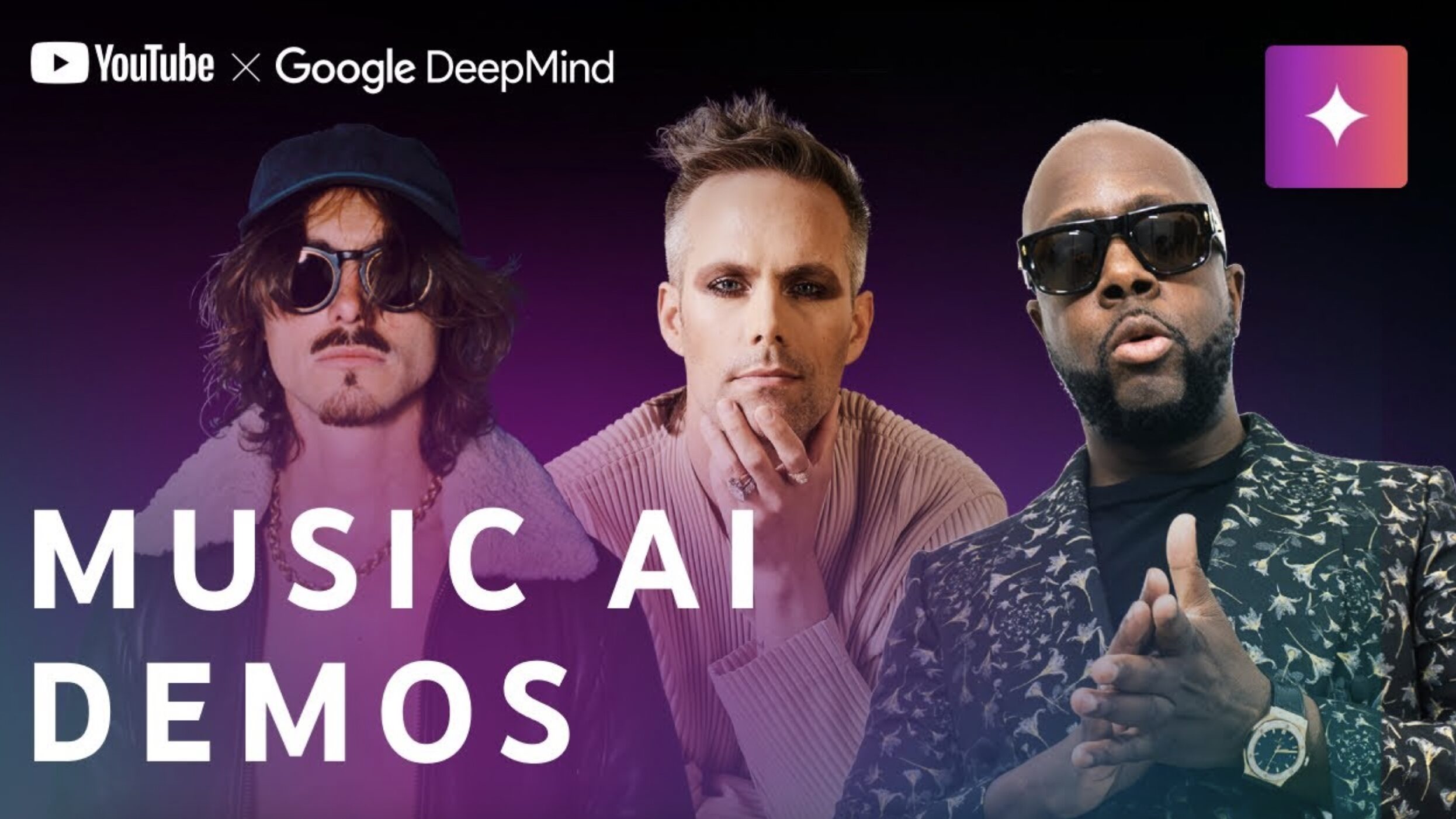Google and YouTube have unveiled a suite of new music tools dubbed ‘Music AI Sandbox,’ with the help of rapper/producer Wyclef Jean, songwriter Justin Tranter, and electronica creator and YouTube personality Marc Rebillet.
A new promotional video shows the three music creators experimenting with the new tool, which Google describes in a blog post as “designed to open a new playground for creativity, allowing people to create new instrumental sections from scratch, transform sound in new ways and much more.”
The video shows an interactive screen that allows users to create music clips with text inputs in a text field titled “describe your track.” There is also a text field titled “sounds you don’t want” and an optional field for lyrics. The video also shows AI-generated clips being inserted into longer musical pieces in a waveform music editor.
Jean, Tranter and Rebillet have released demo tracks on their YouTube channels, showcasing the technology’s capabilities.
In the promo video, Wyclef Jean says “the tools are capable of speeding up the process of what’s in my head, getting it out. You’re able to move at light speed with your creativity.”
He describes his process of “digging in the crates,” meaning going through crates in record stores to find sounds to sample in new tracks.
“So right now, we’re digging in the infinite crate. It’s endless,” he says in the video.
Music AI Sandbox is unlikely to be the technology’s name in the long run, given that the term “sandbox” refers to a new program that’s been isolated in a testing environment.
The technology comes from Google DeepMind, the tech giant’s AI development lab, in conjunction with YouTube, which last year signed a partnership with Universal Music Group (UMG) to launch a ‘Music AI Incubator’ where the two companies would jointly develop AI tools that offer “safe, responsible and profitable” opportunities to music creators and rightsholders.
However, of the three artists featured in Google’s promotion, only one – Justin Tranter – has a significant relationship with Universal.
Google offered little information on how the Music AI Sandbox tools were trained, but did indicate that the tools came out of its work on DeepMind’s Lyria, which the company described last fall as “our most advanced music generation model.”
In its communications, Google often describes its work on generative music AI as being “collaborations” with music creators – stressing the idea that its technology is meant to aid human music-makers, not replace them.
“We’re mindful about not only advancing the state of the art, but doing so responsibly. So we’re taking measures to address the challenges raised by generative technologies and helping enable people and organizations to responsibly work with AI-generated content,” Google stated in a blog post written by Eli Collins, VP, Product at Google Research, and Douglas Eck, Senior Research Director at Google and research lead at Google DeepMind.
“The tools are capable of speeding up the process of what’s in my head, getting it out. You’re able to move at light speed with your creativity.”
Wyclef Jean
Nonetheless, some doubts about the provenance of Google’s research have been raised, particularly in an article published by Billboard earlier this year, which alleged that Google had trained its AI on copyrighted materials without permission, and was seeking to license that material retroactively.
DeepMind also announced the rollout of video-generating tool Veo, which creates “high-quality 1080p resolution videos in a wide range of cinematic and visual styles” and understands terms like “timelapse” or “aerial shots of a landscape.”
The company also unveiled Imagen 3, which it called its “highest quality” text-to-image generator to date.
“Imagen 3 better understands natural language, the intent behind your prompt and incorporates small details from longer prompts. The model’s advanced understanding helps it master a range of styles,” Google said.
At its I/O conference, Google also announced the rollout of an updated version of its Gemini AI tool, including plans to integrate the tool directly into the Google Chrome browser, as well as plans to integrate it into Google’s search engine.
The plan to have Gemini give answers to search engine queries at the top of results pages raised concerns from news publishers, some of whom said their businesses could suffer if Google were to cannibalize their news articles.
An earlier version of Gemini’s image generation tool was widely mocked on social media earlier this year, after users found it offered historically inaccurate depictions, such as Black individuals in the military ranks of Nazi Germany.
The negative attention prompted Google to suspend the tool and issue an apology, in which it promised to fix the errors.Music Business Worldwide

